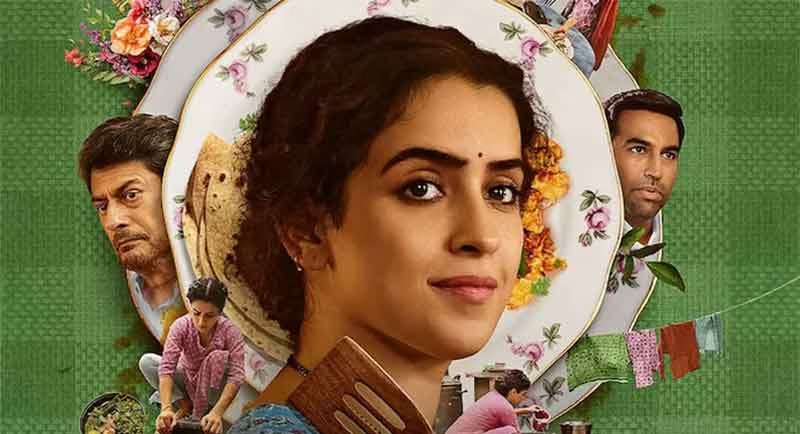
Some stories do not demand attention; they quietly wait to be noticed. Gram Chikitsalay, the understated web series from TVF and Amazon Prime Video, tells one such story.
Set in the fictional village of Bhatkandi, the series follows Dr. Prabhat Sinha, a young doctor posted at a neglected primary health centre (PHC). The PHC stands worn, basic, and under-equipped, silently reflecting the healthcare deficits that exist across rural India. Yet the doctor’s greatest obstacle is not infrastructure alone, but trust.
The villagers avoid him. They go instead to a local quack whose words are familiar and whose presence comforts them, even when his treatments fail. Gram Chikitsalay shows this subtly, never lecturing. It lets the viewer understand that in rural healthcare, people go where they feel listened to. For Dr. Prabhat, building trust becomes as critical as providing medicine.
Sudhir’s Unseen Struggle
Amid this backdrop, the series introduces Sudhir, the son of Nurse Indu. He lives quietly among the villagers, yet is not part of them. Sudhir suffers from Dissociative Identity Disorder (DID), a complex condition in which a person shifts between distinct identities and experiences episodes of lost memory.
The villagers do not understand it. They label Sudhir a liar. His unexplained behaviour, memory lapses, and changes in personality are seen as deliberate deceit. There is no cruelty intended, only an absence of understanding. There is no vocabulary in their world to interpret his struggle as illness.
Importantly, Sudhir does not seek help from the quack. His distress remains invisible and undiagnosed, not because people don’t care, but because they cannot recognise what they are seeing. No one thinks to label his condition as medical. It is Dr. Prabhat who first notices the subtle signs. Where others accuse, he observes. His refusal to judge becomes the turning point.
The series does not sensationalise Sudhir’s condition. Instead, it depicts how suffering often remains unacknowledged when a system lacks the tools and knowledge to respond.
The Reality of Rural Mental Health
Sudhir’s fictional experience mirrors the grim reality of rural mental healthcare in India.
Over 65 per cent of the country’s population lives in villages, yet mental health infrastructure remains overwhelmingly concentrated in urban centres. Government schemes like the National Mental Health Programme (1982) and the National Mental Health Policy (2014) were designed to bring mental health care into communities. Still, vast gaps remain.
Studies indicate that India has only about 0.3 psychiatrists per 100,000 people. The World Health Organisation recommends at least 1 psychiatrist per 10,000. The majority of India’s mental health professionals work in private practice in cities. In villages, PHCs like the one in Bhatkandi rarely have even the most basic mental health resources. Nurses and doctors often lack the training to detect psychological distress, and structured referral systems are weak or absent.
The stigma around mental illness only deepens this silence. Families are reluctant to speak about conditions they do not understand. Patients either remain undiagnosed or are taken to local quacks or spiritual healers. Gram Chikitsalay captures this painful paradox with rare honesty: the villagers are not heartless; they simply do not have the mental health vocabulary or access to formal care.
The government’s introduction of Tele-MANAS in 2022, offering free 24/7 tele-mental health consultation services, is an important step. However, its reach into remote rural populations remains limited. Without an accessible ground-level system that encourages early diagnosis and community engagement, mental health continues to remain a missing part of primary healthcare in rural India.
The Show’s Message of Listening and Trust
Gram Chikitsalay portrays the painful reality that healthcare and trust are inseparable. It shows that even poor treatment by a familiar figure like the quack feels safer than modern treatment offered by a stranger.
This insight holds particular importance for mental health. People like Sudhir suffer in silence because they fear ridicule, disbelief, or being misunderstood. Sudhir experiences this repeatedly; no one believes his distress could be real. It is only Dr. Prabhat who quietly assumes responsibility. Without calling attention to himself, he arranges for Sudhir to be evaluated by a psychiatrist outside the village.
The show does not tie this up neatly. There is no dramatic breakthrough, no full cure. Instead, it makes the viewer understand the enormous importance of simply noticing, believing, and validating someone’s experience. That in itself is an act of healing.
Gram Chikitsalay also forces us to reflect on how trust must be at the centre of any rural mental health policy. Policy interventions cannot succeed if communities perceive healthcare workers as outsiders who will not listen.
A Thoughtful Way Forward
The journey of Bhatkandi is fictional, yet it teaches real lessons.
Strengthening PHCs as the primary contact point for mental health care is critical. Primary health staff should be trained to identify early symptoms of conditions like depression, anxiety, psychosis, or in rare cases, DID. They must know when and how to refer patients. Community health workers such as ASHAs and ANMs should be empowered with basic mental health awareness training to provide local support.
Equally important is integrating services like Tele-MANAS into PHCs and sub-centres, enabling frontline workers to consult mental health professionals remotely. Accessibility to these services must be ensured even in low-resource, digitally limited rural regions.
Ultimately, the system must work to earn the trust of rural patients. As Gram Chikitsalay so gently shows, people will seek help only when they believe their voices will not be ignored or mocked.
In Closing
Gram Chikitsalay does not offer easy answers. Nor does it try to solve the rural mental health crisis with dramatic interventions. Instead, it reveals the silence, stigma, and systemic absence of care through the simple lens of human relationships.
The show leaves us with a question: how many people like Sudhir are still living in villages across India, waiting to be heard, waiting to be recognised? It also leaves us with a possibility. Sometimes the first step toward recovery is not a pill or a test, but the smallest act of care—a doctor who listens without judgement. That is where true healing begins.
Subscribe to Our Newsletter
Get the latest CounterCurrents updates delivered straight to your inbox.
Disha is a Ph.D. Scholar & Senior Research Fellow at Dr. K. R. Narayanan Centre for Dalit and Minorities Studies, Jamia Millia Islamia, New Delhi, India (ORCID: https://orcid.org/0009-0006-7124-9438)















































